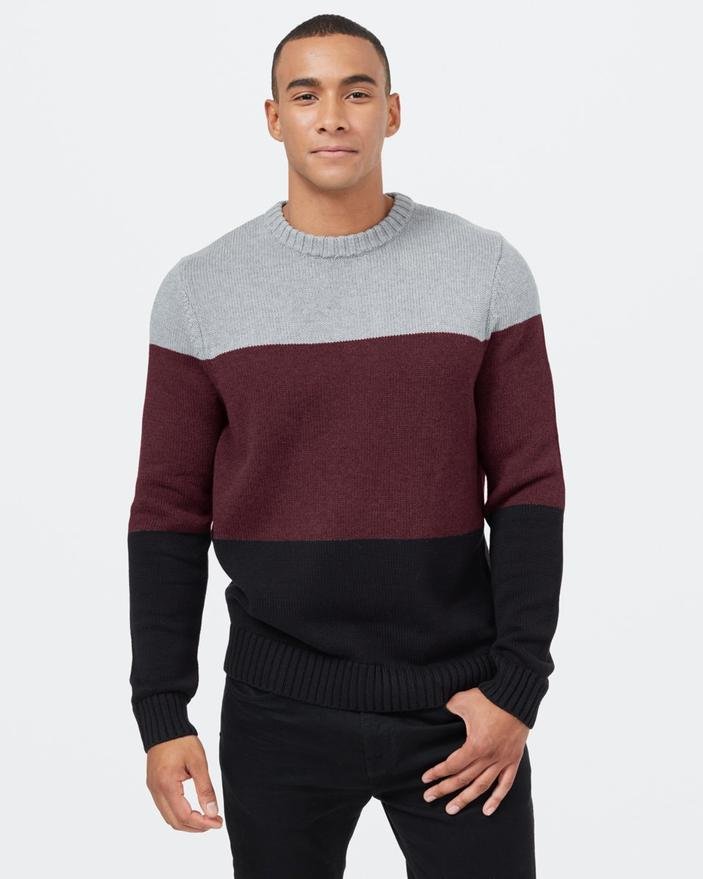5 Must Know Cozy Men's Sweaters Made from Eco-friendly Materials
Whether a hoodie, a crewneck, or a cardigan, fall and winter means sweater weather time. But it’s not just about keeping warm, it’s also about staying sustainable, no matter the season.
While a lot of fashion focuses on women due to the estimate that women spend three times more on clothing, men can also take part in the fashion revolution by being a conscious consumer.
The clothes men choose to wear and the brands they support are just as important and can have a positive impact on the fashion industry.
This guide is a go-to for men looking for eco-friendly sweaters. We’ll discuss choosing sustainable materials, eco-friendly sweater brands, and tips for sweater shopping.
Picking an ethical sweater doesn't mean sacrificing style, either! There are plenty of great men's sweater options available for any budget that support slow fashion and a better world. We'll start by covering materials, then suggest some of our favorite brands and give additional ethical tips when looking for sustainable sweater options, too!
This post does contain some affiliate links which means The Honest Consumer will receive a commission if you decide to purchase, however, at no additional cost to you!
What Materials to Look for When Shopping Men’s Sustainable Sweaters?
Natural fabrics are always a go-to when it comes to a sustainable closet. They’re kinder to the Earth and kinder to your skin, and often better at regulating temperature.
However, some natural fabrics may be more expensive, in which case recycled synthetics provide an alternative.
Here are some of the top materials to look for when shopping for sustainable men’s sweaters.
Wool is a popular choice for sweaters and is derived from various animal sources. One of the most typical is Merino wool, which comes from sheep. You can also find mohair, angora, alpaca, and sustainable cashmere. These tend to be on the pricier side, but you can also give yourself a DIY project and knit your own. When shopping for wool be sure to pay attention to where it is sourced from ensuring animals are treated humanely and be on the look out for any toxic dyes and chemicals added. A plus for sustainability is that wool sweaters are durable and long-lasting, giving you many wears over many winters, and is biodegradable at the end of it’s lifecycle. Recycled wool is also a great choice as it gives used wool items a second life and reduces land use needed for grazing.
Organic Cotton: Although a versatile and popular fabric, cotton is not as insulating as wool. If you’re looking for a lightweight sweater – something to ward off a fall breeze or a cool night late in summer – cotton is a good go-to. Stick to organic cotton: it’s grown without pesticides and insecticides, reducing the environment’s, workers’, and your skin’s exposure to toxic chemicals.
Hemp is plant-based fabric with many environmental benefits, hemp is perfect for a sustainable closet. From seeds to leaves to stalks, practically every part of the plant can be used. Its growth also helps prevent soil erosion, doesn’t require a lot of water, and acts as a natural repellent, therefore not requiring the use of toxic pesticides and insecticides.
Lyocell is a semi-synthetic fabric derived from wood cellulose, particularly eucalyptus trees. It has many great properties – it’s breathable, strong, and stretchy – and eco-friendly benefits. TENCEL™ is a branded version of lyocell that only uses sustainably sourced wood.
Recycled Synthetics -Sweaters, or any clothing for that matter, made from virgin synthetics place a great strain on natural resources and contribute to pollution. Synthetics, however, are usually cheaper. If you’re going with synthetics, try to find recycled varieties such as recycled polyester or recycled nylon. These are made from recycled plastic bottles and fishing nets, keeping waste out of landfills and incinerators.
5 Best Sweater Brands for Men
These sustainable sweater brands are perfect for men who want to be part of the fashion revolution. These ethical fashion brands focus on eco-friendly materials and fair fashion practices using certified factories.
tentree’s Recycled Polyester and Organic Cotton Men’s Sweaters
tentree is saving the planet ten trees at a time: for every purchase you make, they plant ten trees.
They also make use of sustainable fabrics – TENCEL™, recycled polyester, organic cotton, and hemp – offering men’s sweaters in recycled polyester and organic cotton blends.
tentree’s men’s sweaters feature a few unique styles ranging from $78-$98. tentree works with factories that are regularly audited to ensure compliance with their Code of Conduct and are certified by SA8000.
For packaging, they use FSC-certified recycled paper for their inserts, while employing the use of the roll pack method to eliminate using polybags.
Ministry of Supply’s Zero Waste Production Sweaters
Ministry of Supply creates clothes for motion, comfort, easy care, and the planet. Their clothes are made with recycled and bio-based fabrics through 3D Print-Knit production, an on-demand, zero waste production technique.
This sustainable clothing brand is also Climate Neutral Certified and gives back.
Select items are 100% Recycled, 100% Recyclable, for Infinite Uses encouraging customers to return the garment at the end of it’s lifecycle to be recycled in exchange for a store credit.
Ministry of Supply’s men’s sweaters range from $84-$200.
PACT’s Organic Cotton Sweaters for Men
Organic cotton is PACT’s fabric of choice. Soft and sustainable, they use it for a diverse range of clothing for kids, women, and men, including men’s hoodies and sweatshirts. PACT’s men’s sweaters feature light weight quarter zips, hoodies and more.
Their sweaters range from $45-$65. PACT partners with fair trade factories to ensure fair and safe working conditions.
They also keep the environment top of mind with thoughtful packaging that uses cardboard boxes made with 98% post-consumer recycled materials that are 100% recyclable.
Their Give Back Box, meanwhile, allows you to reduce textile waste by donating gently used clothing.
QUINCE’S AFFORDABLE SWEATERS
Quince is a clothing brand committed to making exceptionally high-quality essentials at a price within reach. Because everyone deserves to fill their life with the finer things. Quince strives to create clothes that are affordable and sustainable.
Select clothing items feature eco-friendly materials such as organic cotton, modal, and recycled materials.
Men can find Quince sweaters made from natural materials such as cashmere and merino wool. Quince features affordable price point ranging from $30 to $100.
PRANA’S SUSTAINABLE MEN’S CLOTHING
prAna focuses on fair trade, sustainability, and giving back. Prana uses materials such as recycled wool, 100% organic cotton, and recycled polyester. Prana partners with local and international charities to give back.
prAna offers men’s sweaters are made from sustainable materials such as organic cotton, recycled, polyester, and merino wool. Their men’s sweaters range from $40-$150.
Hopefully this guide helped you learn more about quality materials, given you some eco-friendly slow fashion sweater brands to consider, and learned a few tips for shopping for sweaters this fall and winter.
From picking a fabric to reviewing certifications, there are many aspects to consider when choosing the brand for you, but we hope this guide makes the decision process easier as you strive to incorporate more ethical practices into your wardrobe!
It's easy to find stylish, high quality options that will last a long time, create less waste AND support a better fashion industry!
MEET THE AUTHOR
Claudia Hauter is a South African writer, copy editor, and content creator with degrees in Drama and Anthropology. She works in television managing web content. When she isn’t reading or writing, she’s walking her dog, finding small businesses and markets to support, or attracting butterflies and bees with her vegetable garden. Learn from Claudia on Twitter or Instagram.
MORE SUSTAINABLE STYLE GUIDES
For more tips & tricks on sustainable living be sure to follow The Honest Consumer on social media, subscribe to our newsletter, & check out the Ethical & Sustainable Brand Directory.




